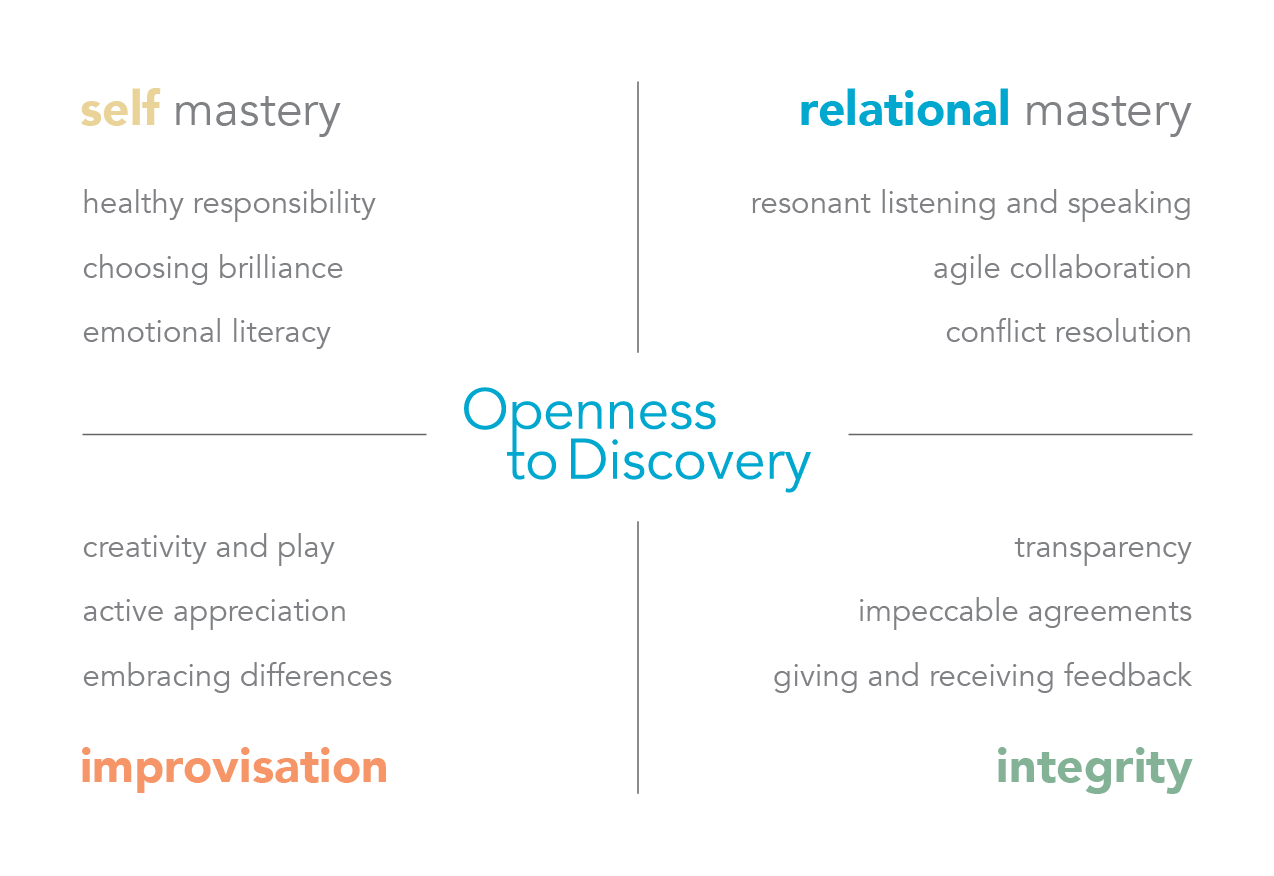One of the key skills we teach leaders and teams at Crafted Leadership is that of emotional literacy. Emotional literacy is the ability to accurately locate, describe and feel emotions.
Why is being emotionally literate a valuable leadership skill? Because a common cause of team dysfunction is people’s discomfort with feelings. When key feelings are avoided, unacknowledged or repressed, a kind of friction occurs, bringing speed down and potentially driving drama up. Stephen Covey calls this friction a “hidden tax” on every interaction.*
However, when we recognize emotions as they occur and create a direct pathway for expressing them, we can move with speed. Moreover, emotionally literate leaders reap the benefits of stronger relationships, which leads to stronger teams, higher levels of creativity, and ultimately, to a much better working environment. In this way, emotional literacy is a multiplier effect skill, enhancing communications, interactions and collaboration.
The economics of emotional literacy
“We are not necessarily thinking machines. We are feeling machines that think.”
Neuroscientist Antonio Damasio
At Crafted Leadership we’ve found that many leaders don’t consider the organizational or personal upside of emotional literacy because they don’t know how to measure the costs or benefits of this so-called “soft” skill. A prevailing response to a question we ask our clients, “How do you handle emotions at work?” is that they are mostly ignored because people find emotions unsettling and/or unprofessional. A classic example of how feelings are treated at work is the sign one of our clients hung on his office door before he started working with us. It read: “Check your emotions at the door.” (His sign now says, “Emotions are welcome here.”)
We agree with welcoming emotions. In our experience, emotional mastery is requires commitment and is exceptionally valuable to leaders who rely on people skills. Emotional literacy may sound “soft,” to some, but as Fernando Flores, former Chilean Minister of Finance, political prisoner, and renowned consultant was known for saying,”the soft issues are the hard issues.”
We frame emotional literacy in economic terms. First, understanding the wisdom of emotions and being able to express them (and encourage others to do the same) enables leaders to build high trust, a quality Covey calls equal to a tax dividend. Second, emotional literacy helps leaders create resonance with others and convey messages that have more of an impact on team members, so they stick. As Carolyn Webb points out in How to Have a Good Day, people’s brains form stronger associations when emotions are included.
On the flip side, when emotions are ignored or repressed, we are, as a leading specialist on the neuropsychology of emotions, Dr. Julia Colwell, points out, actually “cognitively disabled.” Have you ever attended a meeting where you can feel a tension emanating from someone in the room but it’s completely ignored? Colwell has a term for this: “Player down!” She says when a team member is having a strong emotional reaction that goes unexpressed or unacknowledged, the impact is the same as when a soccer player is felled. The person is (hopefully, temporarily) disabled, and therefore the team is directly impacted. Rather than ignoring the emotion, to get the team back to fully functioning, the focus must shift to helping get the team member back up on their feet and back in the game by letting themselves experience their emotions and even express them to those around them.

Player Down!
While team leaders might worry that this process will slow things down, in fact, just the opposite occurs. Taking the time to honor emotional processes allows each member to function at their full potential. What really wastes the team’s time and energy is avoiding emotion, hoping it will go away. It won’t. It will turn into post-meeting complaining sessions, unhappy employees, and poor team functioning.
I vividly remember sitting in a meeting years ago where a person wept quietly while the meeting leader ignored her, pressing on to finish the established agenda. I don’t know whether the leader chose to ignore the weeping out of her own discomfort or from a bizarre sense of priorities, but the result was a distracted meeting and a dimming of my trust in this leader.
How do the best leaders build emotional literacy?
In our view, the best leaders make emotional literacy an explicit objective. It becomes like any other goal that is focused on, measured and improved. Four key measurable qualities of emotional literacy are:
- The ability to distinguish four core feelings from each other (anger, sadness, fear, joy)
- The ability to feel a feeling to completion
- The ability to discern the information embedded in the feeling
- Encouraging others to feel their feelings to completion
There are skills embedded in each of these qualities. These skills are part of Crafted Leadership’s Architecture of Inspiring Leaders framework.
We support teams and leaders to turn dysfunction into high function, and one aspect is emotional literacy. To commit to this is to commit to building trust and your own authenticity as a leader. If you’re interested in exploring these topics with us, contact us at nancy@craftedleadership.com or julianna@craftedleadership.com. Or sign up for our newsletter at craftedleadership.com, follow us on LinkedIn, Twitter or Facebook.
—
*According to some research, a feeling is the side product of your brain perceiving an emotion and assigning a certain meaning to it. For simplicity we use the terms feelings and emotions interchangeably.


